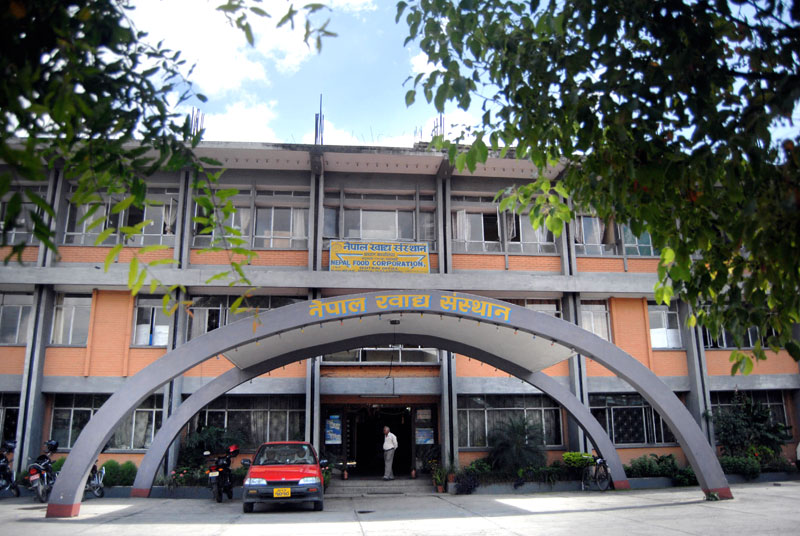Diversify food buffer stock to tame inflation: NRB
Kathmandu, June 16
The government must maintain adequate buffer stock of essential food items to tame inflation, Nara Bahadur Thapa, executive director of Research Department at Nepal Rastra Bank (NRB), said today.
“We currently maintain buffer stock of rice. This is not enough. Buffer stock of other sensitive items, such as pulses and sugar, should also be kept. This will help contain inflation,” Thapa told an interaction organised by IBN Media and Research Pvt Ltd.
Inflation stood at 10 per cent in May, shows the latest NRB report. This was primarily because of 23.4 per cent hike in prices of pulses and legumes, 12.5 per cent rise in prices of sugar and sugar products, and 5.9 per cent increment in prices of cereal grains and their products.
Thapa was of the view that adequate stock of food would have helped government to make intervention in market to keep prices at certain level.
The government has currently directed Nepal Food Corporation (NFC), a state-owned company, to maintain national buffer stock of food of 25,000 tonnes.
As per 14th Summit of the South Asian Association for Regional Cooperation (SAARC) held in Pakistan in 2007, which decided to create a SAARC Food Bank, Nepal should also maintain additional food buffer stock of 8,000 tonnes.
But NFC currently maintains food buffer stock of 22,103 tonnes, which is less than the minimum national food buffer stock requirement of 25,000 tonnes. What is even more surprising is that all of the available food stock comprises rice, except for 340 quintals of beans and 350 quintals of buckwheat.
Such negligence may cost dear, as it is said the country may face deficit of 300,000 to 500,000 tonnes of food in case of a severe drought.
“We used to maintain stock of pulses, sugar and cooking oil as well around four to five years ago. But we have not been able to diversify the food basket lately because of lack of budget,” NFC Spokesperson Pawan Kumar Karki told The Himalayan Times.
Karki, however, said NFC has written to the Ministry of Supplies to allow it to keep stock of sugar. “We are also planning to maintain stock of lentils and other beans from next fiscal year,” Karki added.
It is essential for NFC to maintain adequate food buffer stock because this will help fulfil supply gaps during period of shortage and reduce volatility of food prices. This will ultimately help government to tame inflation because the weight of food and beverages in the consumer price index hovers around 44 per cent.
“So, maintaining adequate buffer stock of sensitive food items is essential,” Thapa said.
This, however, should not mean NFC should rapidly expand its operation throughout country, posing a threat to private food suppliers. Also, activities of NFC should not work as disincentive to farmers who grow food products.
Various reports have said NFC should maintain national food buffer stock of five per cent of annual consumption.






